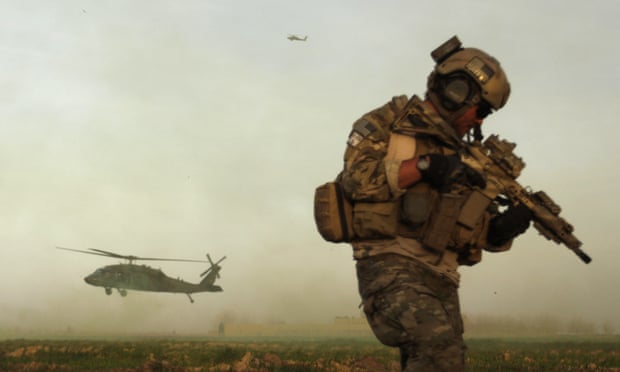By Halima Kazem
Those with ties to the country welcome Obama’s decision in a year that has seen Taliban attempts to take over Afghan cities, including Kunduz last month.
To Nilufar Shuja, Barack Obama’s announcement this week to keep some US troops in Afghanistan was a fulfillment of moral responsibility.
“It would have been devastating if the troops had left as planned,” said Shuja, an Afghan American media and business consultant who returned to northern California in June after almost two years of living in Kabul. “The country is not ready to defend itself.
“Lots of things haven’t been done right and many on all sides are to blame, but as both an Afghan and an American who has spent a lot of time living in both places, I appreciate Obama’s sense of responsibility toward ensuring that Afghanistan is not prematurely abandoned.”
Other Afghans with ties to the United States share Shuja’s support for Obama’s decision.
“The presence of US troops will have a lot of positive psychological impact on the Afghan people and the government because the Taliban and other terrorists will not have the feeling that they can rule Afghanistan again. They’ll know that international troops are in Afghanistan,” said Ali Mohammad, a Kabul-based Afghan political analyst.
On Thursday, Obama said he will keep almost 10,000 US troops in Afghanistan through most of 2016 and afterward 5,500 troops will remain at small US bases in the country.
“To the Afghan people, who have suffered so much – Americans’ commitment to you and to a secure, stable and unified Afghanistan, that remains firm … And as you defend and build your country, today is a reminder that the United States keeps our commitments,” Obama said.
The troop numbers are smaller than in previous years, and a great deal will be determined by the next US president, elected in late 2016.
Critics in the US have decried Obama’s announcement as a betrayal of his promise to end the war, and a potential signal of perpetual war.
But to some with ties to Afghanistan, Obama’s statement quells fears that the US would abruptly depart the country, as it did in Iraq in 2011, and leave behind an ill-equipped government and security forces.
Shuja and others say 2015 so far has been a year of panic in Afghanistan with the Taliban’s brazen attempt to take over cities such as Kunduz in late September. Thousands of people, especially young Afghan men, are trying to flee the growing conflict, which has devastated the economy and job prospects. As of August, the United Nations High Commissioner for Refugees (UNHCR) reports that 950,000 Afghans are internally displaced because of the fighting in the country.
“The Taliban’s attack on Kunduz shows how all of the progress of the last 13 years can be washed away in an instant,” said Sher Jan Ahmadzai, the coordinator for education and outreach programs at the University of Nebraska at Omaha’s center for Afghanistan studies. “Obama’s message is a morale booster for the Afghan security forces.”
Ahmadzai said he is encouraged to learn of Obama’s continued efforts to train the Afghan security forces, especially since recent battles with the Taliban have exhibited their structural deficits. According to a June US Department of Defense Report on Enhancing Security and Stability in Afghanistan, “the AAF [Afghan air force] continues to struggle with a shortage of pilots and aircrews, as well as the maintenance of air platforms”.
Barnett Rubin, a leading expert on Afghan affairs and a former senior adviser to the US government’s special representative for Afghanistan and Pakistan, said the Afghan armed forces have many gaps, but the biggest gaps are not technical military ones.
“A weak and divided government cannot have strong armed forces. As long as political conflict paralyzes the government and keeps institutions from working according to the constitution, the ANSDF [Afghan national security and defense forces] will not be strong,” said Rubin.
Not everyone is convinced that the US’s narrow mission to train Afghan security forces and fight the Taliban and al-Qaida will be enough to grow the economy and attract desperately needed investment to create jobs.
Dost, 18, from Kabul, who didn’t want to give his last name, said that he is planning to pay human smugglers $10,000 to take him to Germany or Sweden.
“I didn’t study and work hard for the last 10 years to now sit around and do nothing. There is no security and not enough jobs for us here,” said Dost, who studied English and computers while attending public school in Kabul beginning in 2002.
Shuja said the generation of Afghans that Dost represents have had the hardest adjustment to the US and Nato troop drawdown.
“It was their generation that benefited the most from the US presence, so of course it’s natural for them to be affected the most by their withdrawal,” she said.


No comments:
Post a Comment